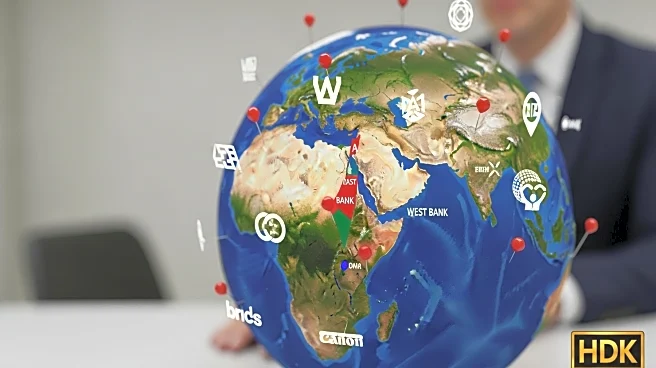What is the story about?
What's Happening?
The United Nations has updated its blacklist of companies operating in West Bank settlements, adding 68 new firms, including major Israeli and international companies. This brings the total to 158 businesses from 11 countries, including the United States, Canada, and several European nations. The list aims to highlight business involvement in settlement activities and apply public pressure for compliance with international human rights standards. The update has been criticized by Israel as an attempt to promote boycotts, although the UN emphasizes that the list is not a legal process but a tool for public accountability.
Why It's Important?
The expansion of the UN blacklist could have significant repercussions for the companies involved, potentially affecting their reputations and influencing the decisions of investors and international partners. The list serves as a symbolic gesture that may impact the economic activities of these companies in the West Bank and beyond. It also underscores the ongoing international debate over the legality and ethics of business operations in disputed territories, highlighting the tension between economic interests and human rights considerations.
What's Next?
The UN plans to continue reviewing additional companies for potential inclusion on the blacklist, although budget constraints limit the pace of these evaluations. The affected companies may face increased pressure from activists and consumers to alter their business practices. Governments and international organizations might also respond with policy measures or diplomatic actions, further complicating the geopolitical landscape surrounding the Israeli-Palestinian conflict.
Beyond the Headlines
The blacklist raises broader questions about corporate responsibility and the role of businesses in conflict zones. It highlights the challenges of balancing economic development with ethical considerations and the potential for international bodies to influence corporate behavior. The list's impact on Israeli companies could also affect the country's economy and its relations with other nations, as businesses navigate the complexities of operating in politically sensitive areas.
















